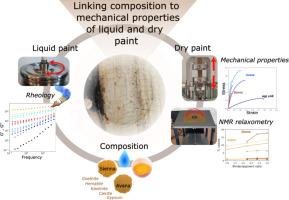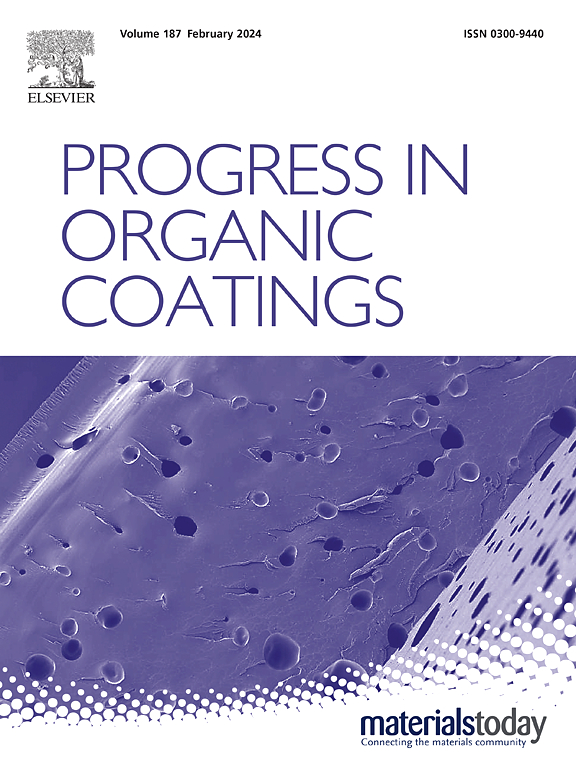Multiscale characterization of liquid and dry egg tempera paints based on ochre pigments
IF 6.5
2区 材料科学
Q1 CHEMISTRY, APPLIED
引用次数: 0
Abstract
Understanding the mechanical properties of paints is crucial for their preservation, as these properties determine how paints deform under climate-induced stress and, consequently, affect their durability. This study focuses on egg-tempera paints, whose mechanical characteristics have been minimally explored so far. Various formulations using two natural ochre pigments were investigated. Initially, the pigments were characterized to identify compositional and morphological differences. Rheological analysis was conducted to study the liquid properties of the formulations. Tensile tests and dynamic mechanical analysis were performed on unsupported dry paints to assess their mechanical properties. Additionally, single-sided NMR was used non-invasively to probe the network mobility before and after nine months of aging, providing insights into the network tightness. It was found that ochre-based paints display significant brittleness. The viscoelastic properties of tempera paints are predominantly influenced by the type of earth pigments used and the pigment-to-binder ratio. Importantly, the liquid properties were found to correlate with the solid-state behavior, emphasizing the critical role of formulation in the final performance of tempera paints.

基于赭石颜料的液体和干蛋彩颜料的多尺度表征
了解涂料的机械特性对其保存至关重要,因为这些特性决定了涂料在气候应力作用下的变形方式,进而影响其耐久性。本研究的重点是迄今为止对其机械特性研究甚少的鸡蛋香精涂料。研究人员使用两种天然赭石颜料对各种配方进行了调查。首先,对颜料进行了表征,以确定其成分和形态差异。流变分析用于研究配方的液体特性。对无支撑的干颜料进行了拉伸试验和动态机械分析,以评估其机械性能。此外,还使用单面核磁共振技术对老化前后九个月的网络流动性进行了无损探查,从而深入了解网络的紧密性。研究发现,赭石基涂料具有明显的脆性。钢笔画颜料的粘弹性能主要受所用泥土颜料类型和颜料与粘合剂比例的影响。重要的是,研究发现液体特性与固态行为相关,从而强调了配方在蛋彩颜料最终性能中的关键作用。
本文章由计算机程序翻译,如有差异,请以英文原文为准。
求助全文
约1分钟内获得全文
求助全文
来源期刊

Progress in Organic Coatings
工程技术-材料科学:膜
CiteScore
11.40
自引率
15.20%
发文量
577
审稿时长
48 days
期刊介绍:
The aim of this international journal is to analyse and publicise the progress and current state of knowledge in the field of organic coatings and related materials. The Editors and the Editorial Board members will solicit both review and research papers from academic and industrial scientists who are actively engaged in research and development or, in the case of review papers, have extensive experience in the subject to be reviewed. Unsolicited manuscripts will be accepted if they meet the journal''s requirements. The journal publishes papers dealing with such subjects as:
• Chemical, physical and technological properties of organic coatings and related materials
• Problems and methods of preparation, manufacture and application of these materials
• Performance, testing and analysis.
 求助内容:
求助内容: 应助结果提醒方式:
应助结果提醒方式:


